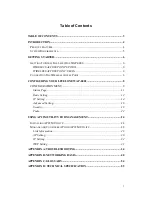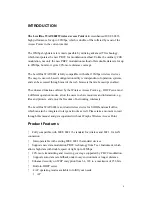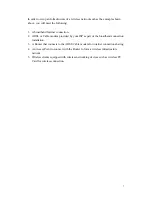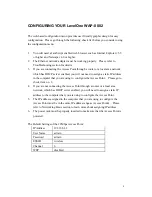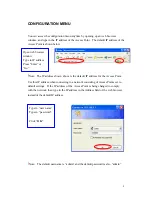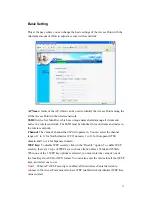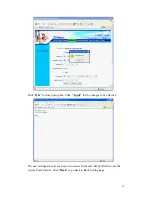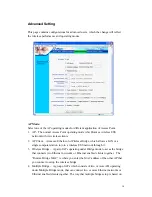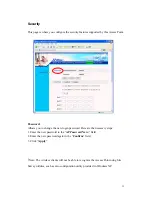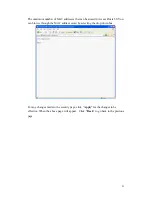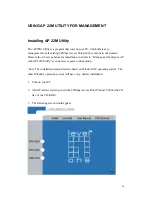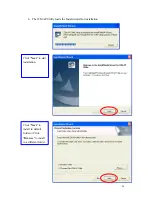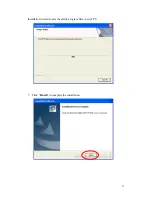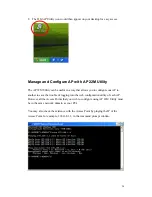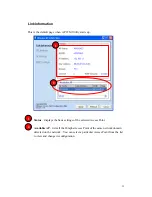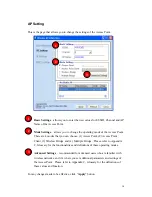
17
the topology of Ad-Hoc mode.
Beacon Interval:
To set the period of time in milliseconds that AP sends out a
beacon. Default is 100 milliseconds.
RTS Threashold:
To set the size of RTS/CTS packet size. Default is 2432 bytes.
Fragmentation Threashold
: To set the the number of bytes used for the
fragmentation boundary for directed messages. Default is 2436 bytes.
DTIM Interval:
This value indicates the interval of the Delivery Traffic Indication
Message (DTIM). A DTIM field is a countdown field informing clients of the next
window for listening to broadcast and multicast messages. When the Access Point has
buffered broadcast or multicast messages for associated clients, it sends the next
DTIM with a DTIM Interval value. Access Point Clients hear the beacons and awaken
to receive the broadcast and multicast messages.
Authentication Type:
The Authentication Type default is set to Open System, and
you may want to set to Shared Key when the clients and AP in the same wireless
network enable the WEP encryption. All the nodes and hosts on the network must use
the same authentication type. It’s recommend that you use the default setting.
Preamble Type:
Preamble is a sequence of bits transmitted at 1Mbps that allows
the PHY circuitry to reach steady-state demodulation and synchronization of bit clock
and frame start. Two different preambles and headers are defined: the mandatory
supported Long Preamble and header, which interoperates with the 1 Mbit/s and 2
Mbit/s DSSS specification (as described in IEEE Std 802.11), and an optional Short
Preamble and header (as described in IEEE Std 802.11b). At the receiver, the
Preamble and header are processed to aid in demodulation and delivery of the PSDU.
The Short Preamble and header may be used to minimize overhead and, thus,
maximize the network data throughput. However, the Short Preamble is supported
only from the IEEE 802.11b (High-Rate) standard and not from the original IEEE
802.11. That means that stations using Short-Preamble cannot communicate with
stations implementing the original version of the protocol.
Basic Rate:
The basic transfer rate is set depending on the speed of your wireless
network. For example, you set 1-2 (Mbps) if you have older 802.11 compliant
device in your network, which supports 1 ~ 2 Mbps data rate. This setting does not

